The problem of fake voters
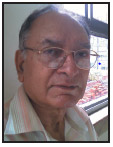 N D Sharma
N D Sharma
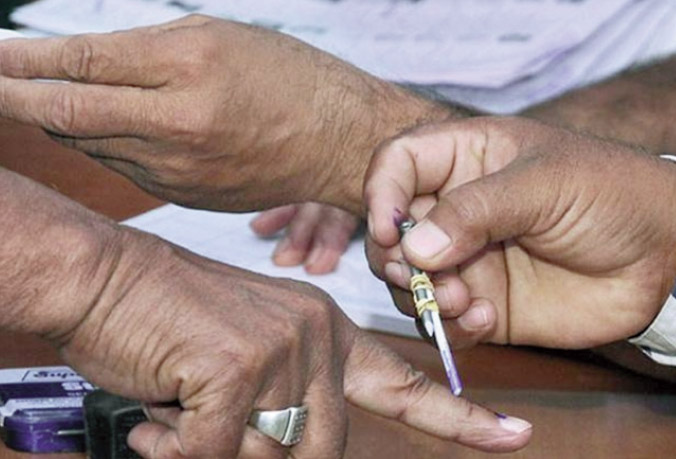
During the campaign of
by-elections for
Mungaoli and Kolaras
Assembly constituencies
in Madhya Pradesh, Congress
activists detected discrepancies in
voters' lists last month.
Photocopies showing the same
voter registered in more than one
locality started appearing in
social media. As the complaints at the local level did not have the
desired effect, the party led by
Lok Sabha member from Shivpuri
Jyotiraditya Scindia approached
the Election Commission. A
summary re-check of voters' lists
was ordered.
'Fake voter' is not a
new phenomenon in
India's electoral
process. But the
registration of fake
voters in large
numbers by a
political party or a
leader with
resources and
manpower at their
disposal has
become much too
common in recent
decades.
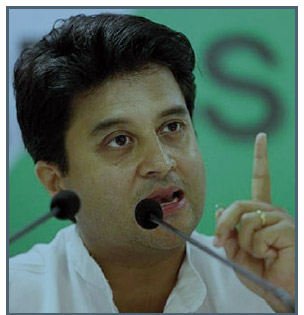 Jyotiraditya Scindia
A week before the day of
polling, the Ashoknagar district
Collector's office sent its report to
the Chief Electoral Officer in
Bhopal saying that 1800 fake
voters had been detected
in the Mungaoli Assembly
constituency. Of these 1800, as
many as 834 were dead, 312 were
listed at more than one place, 245
voters were not traceable and 435
had been transferred to different
places but had not got their
names in the Mungaoli constituency deleted.
Jyotiraditya Scindia
A week before the day of
polling, the Ashoknagar district
Collector's office sent its report to
the Chief Electoral Officer in
Bhopal saying that 1800 fake
voters had been detected
in the Mungaoli Assembly
constituency. Of these 1800, as
many as 834 were dead, 312 were
listed at more than one place, 245
voters were not traceable and 435
had been transferred to different
places but had not got their
names in the Mungaoli constituency deleted.
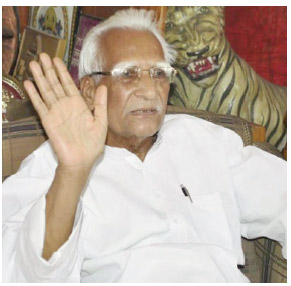 Sriniwas Tiwari
Two days later, Ashoknagar
Collector Babusingh Jamod was
transferred on a direction of the
Election Commission. Besides, a
few junior level functionaries
were placed under suspension.
The Mungaoli constituency is part
of Ashoknagar district.
Sriniwas Tiwari
Two days later, Ashoknagar
Collector Babusingh Jamod was
transferred on a direction of the
Election Commission. Besides, a
few junior level functionaries
were placed under suspension.
The Mungaoli constituency is part
of Ashoknagar district.
'Fake voter' is not a new
phenomenon in India's electoral
process. But the registration of
fake voters in large numbers by a
political party or a leader with
resources and manpower at their
disposal has become much too
common in recent decades. It is
not always that these are
detected on time.
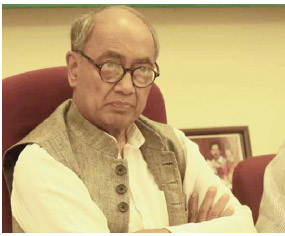 Digvijaya Singh
Madhya Pradesh Congress
leader Sriniwas Tiwari, who was
Speaker of Madhya Pradesh
Assembly for ten years when
Digvijaya Singh was the Chief
Minister, had been winning
continuously from the Mangawan
constituency of Rewa district. It
was during the 2003 election
campaign that the BJP spotted
discrepancies in the voters' lists in
the constituency. Following the
complaint by the BJP, the Election
Commission got the voters' lists
checked and came out with
21,815 fake voters. Some 1400
adults were listed as living in just
one four-room house. Tiwari lost
to the BJP's Girish Gautam by a
sizeable margin. (Sriniwas Tiwari,
in his 90s, died in January this
year).
Digvijaya Singh
Madhya Pradesh Congress
leader Sriniwas Tiwari, who was
Speaker of Madhya Pradesh
Assembly for ten years when
Digvijaya Singh was the Chief
Minister, had been winning
continuously from the Mangawan
constituency of Rewa district. It
was during the 2003 election
campaign that the BJP spotted
discrepancies in the voters' lists in
the constituency. Following the
complaint by the BJP, the Election
Commission got the voters' lists
checked and came out with
21,815 fake voters. Some 1400
adults were listed as living in just
one four-room house. Tiwari lost
to the BJP's Girish Gautam by a
sizeable margin. (Sriniwas Tiwari,
in his 90s, died in January this
year).
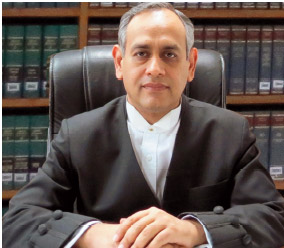 Vibhu Bakhru
Quite often, the fake voters are
detected (and deleted) during the
annual revision of voters' lists
which takes place much after the
polling. Narendra Modi won from
the Varanasi Lok Sabha
constituency with a margin of
over 3.7 lakh votes in 2014.
During the revision of electoral
rolls towards the end of the year,
over six lakh fake voters were
discovered in the Varanasi Lok
Sabha constituency. It did not
help Aam Aadmi Party's Arvind
Kejriwal, who was a runner-up in the Varanasi Lok Sabha
constituency. But it made him
wiser for the forthcoming Delhi
Assembly elections.
Vibhu Bakhru
Quite often, the fake voters are
detected (and deleted) during the
annual revision of voters' lists
which takes place much after the
polling. Narendra Modi won from
the Varanasi Lok Sabha
constituency with a margin of
over 3.7 lakh votes in 2014.
During the revision of electoral
rolls towards the end of the year,
over six lakh fake voters were
discovered in the Varanasi Lok
Sabha constituency. It did not
help Aam Aadmi Party's Arvind
Kejriwal, who was a runner-up in the Varanasi Lok Sabha
constituency. But it made him
wiser for the forthcoming Delhi
Assembly elections.
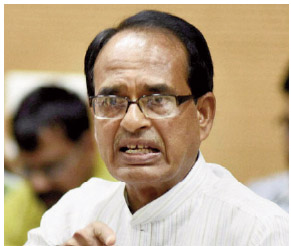 Shivraj Singh Chouhan
Both AAP and Congress had
detected bogus entries in voters'
lists for the Delhi Assembly
elections. Leaders of the two
parties approached the Election
Commission but the Election
Commission behaved shabbily
and refused to take notice of their
complaints. The matter was then
taken to Delhi High Court which
pulled up the Election
Commission and asked it what
action it had taken on the
allegation about the presence of a
large number of bogus voters in
various Assembly constituencies
of the national capital. 'What is
the cause of it? Obviously
someone is not doing their job
properly. Last year, my
photograph was also wrong',
Justice Vibhu Bakhru said, while
directing the Chief Election
Commissioner and the Chief
Electoral Officer of Delhi to file an
affidavit 'indicating the cause of
error.'
Shivraj Singh Chouhan
Both AAP and Congress had
detected bogus entries in voters'
lists for the Delhi Assembly
elections. Leaders of the two
parties approached the Election
Commission but the Election
Commission behaved shabbily
and refused to take notice of their
complaints. The matter was then
taken to Delhi High Court which
pulled up the Election
Commission and asked it what
action it had taken on the
allegation about the presence of a
large number of bogus voters in
various Assembly constituencies
of the national capital. 'What is
the cause of it? Obviously
someone is not doing their job
properly. Last year, my
photograph was also wrong',
Justice Vibhu Bakhru said, while
directing the Chief Election
Commissioner and the Chief
Electoral Officer of Delhi to file an
affidavit 'indicating the cause of
error.'
The, court said that there were
'discrepancies' in the electoral
rolls as shown by the petitioner,
Naresh Kumar. The court also
said that the allegation that there
were many persons in the city
who had numerous voter cards in
their names but with different
addresses needed to be rectified
if they were still existing.
In response to the complaints
of the Aam Aadmi Party and the
Congress that Delhi's electoral
rolls carried names of a large
number of bogus voters, Election
Commission wrote to the two
parties on January 11, 2015 that
1,20,605 'duplications' had been
noticed in the electoral rolls
(which have been deleted).
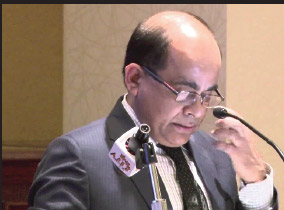 S K Mishra
Election Commission's response
came two days before it was
scheduled to file an affidavit in
the High Court.
get its work done by the State
government employees and its
major handicap is that it has no
control over these employees
outside of the period when Code
of Conduct is in force. Once the
Code of Conduct period is over,
these employees are at the mercy
of the State government.
S K Mishra
Election Commission's response
came two days before it was
scheduled to file an affidavit in
the High Court.
get its work done by the State
government employees and its
major handicap is that it has no
control over these employees
outside of the period when Code
of Conduct is in force. Once the
Code of Conduct period is over,
these employees are at the mercy
of the State government.
An unscrupulous Chief Minister
like Shivraj Singh Chouhan of
Madhya Pradesh has been acting
almost with a vengeance:
rewarding those who had defied
the Election Commission in the
interest of the party and
punishing those who have
honestly discharged their
electoral responsibilities and the
BJP has suffered from their honesty.
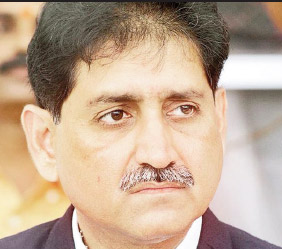 Tukojirao Puar
At the scrutiny of nomination
papers during the 2008 Madhya
Pradesh Assembly elections, then
Minister of State Tukojirao Puar
created ruckus in the office of
Dewas Sub-Divisional Magistrate
(SDM) Sanjana Jain who was
Returning Officer for Sonkutch
(SC) constituency. Phoolchand
Verma was the BJP candidate
from Sonkutch. Puar had
accompanied Verma at the time
of the scrutiny. On a direction of
the Election Commission, a
criminal case was registered
against Puar under Sections
186,353 and 506 of IPC.
Tukojirao Puar
At the scrutiny of nomination
papers during the 2008 Madhya
Pradesh Assembly elections, then
Minister of State Tukojirao Puar
created ruckus in the office of
Dewas Sub-Divisional Magistrate
(SDM) Sanjana Jain who was
Returning Officer for Sonkutch
(SC) constituency. Phoolchand
Verma was the BJP candidate
from Sonkutch. Puar had
accompanied Verma at the time
of the scrutiny. On a direction of
the Election Commission, a
criminal case was registered
against Puar under Sections
186,353 and 506 of IPC.
As the Sections make it a
cognizable offence, Puar was
arrested by the police and lodged
in police lock-up till he got bail a
few days later. Chief Minister
Chouhan later told an election
meeting at Dewas (Puar's
constituency) that he was proud
of Tukojirao Puar. Not only that,
Chouhan elevated Puar to the
cabinet rank after the elections.
Sub-Divisional Magistrate Sanjana
Jain was later withdrawn from
field work and given a semiclerical
job in Bhopal.
The Election Commission took a serious note
of Mishra's kow-towing to Chouhan during
the campaign and ordered his removal from
Sehore a few days before polling. Once the
Code of Conduct period was over, Chouhan
made S K Mishra Collector of much more
important Bhopal district and then Secretary
to the Chief Minister, sending an
unmistakable message to the bureaucracy
that he would take care of the officers defying
the Election Commission to protect his
interests.
On the other side is the case of
S K Mishra. Chouhan was a
member of the Lok Sabha when
he became Chief Minister in November 2005. S K Mishra was
the Collector of Sehore and
Returning Officer for the Budhni
constituency, from where
Chouhan contested and was
elected to the Assembly.
The
Election Commission took a
serious note of Mishra's kowtowing
to Chouhan during the
campaign and ordered his
removal from Sehore a few days
before polling. Once the Code of
Conduct period was over,
Chouhan made S K Mishra
Collector of much more important
Bhopal district and then Secretary
to the Chief Minister, sending an
unmistakable message to the
bureaucracy that he would take
care of the officers defying the
Election Commission to protect
his interests.
Ashoknagar Collector
Babusingh Jamod, who has been
transferred on the Election
Commission's orders following
detection of 1800 fake voters in
Mungaoli constituency, is sure to
be taken care of by Chouhan once
the Code of Conduct period is
over. Last year he was rewarded
by the Chouhan government for
his excellent work related to
preparation of electoral rolls
(read enlisting a large number of
fake voters).




 N D Sharma
N D Sharma
 Jyotiraditya Scindia
Jyotiraditya Scindia Sriniwas Tiwari
Sriniwas Tiwari Digvijaya Singh
Digvijaya Singh Vibhu Bakhru
Vibhu Bakhru Shivraj Singh Chouhan
Shivraj Singh Chouhan S K Mishra
S K Mishra Tukojirao Puar
Tukojirao Puar